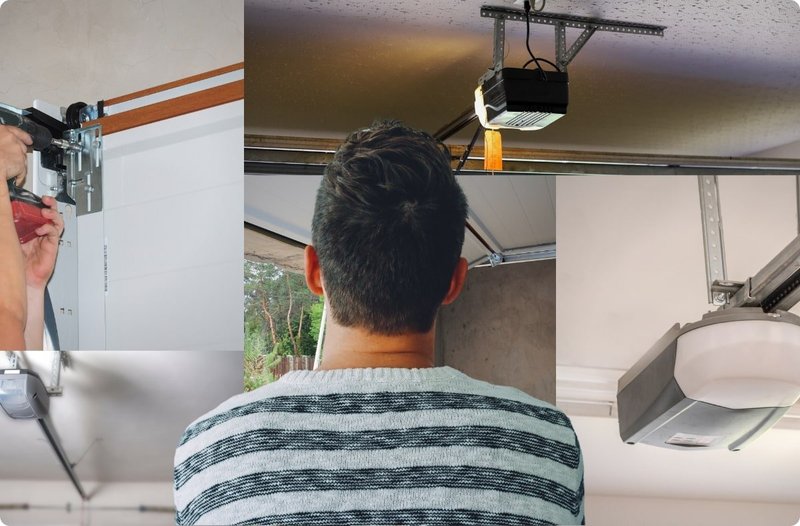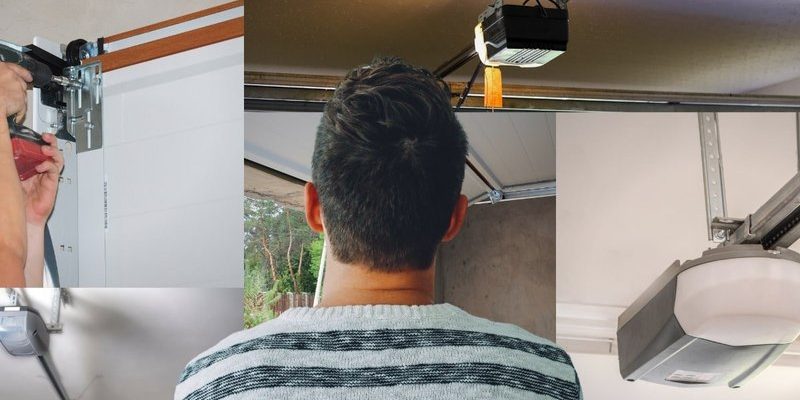
Imagine your garage door opener as the hardworking hero of your home. In the chilly winters, it’s battling frost. During the sweltering summer, it’s dealing with heat. And don’t forget about those rainy, humid days! If you pick the right one, you’re setting it up for success, no matter what Mother Nature throws at it. Let’s dive into how to choose a garage door opener that can handle the climate you live in while keeping your garage door functioning smoothly.
Understanding Garage Door Opener Types
Before diving into climate considerations, it’s important to grasp the different types of garage door openers. There are basically three main types: chain drive, belt drive, and screw drive.
- Chain Drive Openers: These are the most commonly used. They are durable and work well in various conditions but can be noisy. Think of them as the reliable workhorse that gets the job done.
- Belt Drive Openers: Quieter than chain drives, they use a rubber belt. This makes them perfect for attached garages where noise is a concern. They’re like that friend who’s always quiet but gets things done seamlessly.
- Screw Drive Openers: These have fewer moving parts, making them less prone to wear and tear. They work well in extreme temperatures but can be slower. Imagine a peaceful stroll compared to a sprint!
Each type has its advantages, but your climate can dictate which one will ultimately serve you best.
Cold Climates: What to Look For
If you live in a place with frigid temperatures, your garage door opener needs to perform reliably despite the chill. Here’s what to consider:
1. Motor Power: Look for an opener with a stronger motor. A powerful opener can handle the extra strain that cold weather places on mechanisms, such as freezing lubricants or ice buildup on the tracks.
2. Battery Backup: Winter storms can cause power outages, so a battery backup is a lifesaver. For instance, if a heavy snowstorm hits, you’ll still have access to your garage without worrying about being locked out.
3. Insulated Design: Some openers come with added insulation features which can help maintain a stable temperature in your garage. An insulated opener is like a cozy blanket for your garage door!
Think about the harsh winters in places like the Midwest. A robust garage door opener can stand up to the repeated cycles of opening and closing when you’re coming in from the cold.
Hot and Humid Climates: Key Factors
In regions where heat and humidity reign, such as the South, your garage door opener faces different challenges. Here’s what to keep in mind:
1. Humidity Resistance: Look for openers made of materials that can withstand moisture without rusting or corroding. You don’t want your opener falling apart in the tropical humidity like a house of cards!
2. Heat Tolerance: Similar to selecting a good sunscreen, pick an opener that can handle high temperatures. Look for openers rated for higher thermal limits, so they can withstand the searing heat of your summer afternoons.
3. Regular Maintenance: Humidity can lead to growth in mold and other substances, so maintenance is key. Opt for an opener that allows easy access to components for cleaning and upkeep.
Imagine living in a coastal area; investing in a reliable garage door opener means enjoying seamless operation without the worry of breakdowns in the hot, sticky weather.
Windy Areas: Choosing Wisely
If your home is in a location known for strong winds, like coastal or open plains, you’ll want to pay attention to these factors:
1. Wind Resistance: Consider a garage door opener that works with reinforced doors designed to withstand high winds. These are akin to building a sandcastle with sturdy walls—it’ll stand strong against the tide!
2. Secure Operation: Look for features like a secure locking mechanism that helps prevent forced entry during windy storms. A good opener should be tough enough to not easily budge when wind gusts hit.
3. Vibration Dampening: It’s ideal if the opener offers vibration reduction settings. This feature is helpful during stormy weather when wind noise is a nuisance, so you’ll appreciate the peace and quiet.
A wind-tolerant opener helps ensure that your garage remains secure and functional, even when the elements are against you.
Choosing Opener Features Based on Climate
Now that we’ve covered the basic types and climate considerations, let’s delve into some specific features that can enhance your garage door opener, regardless of your climate challenges.
1. Smart Technology: Modern garage door openers come equipped with smart technology, allowing you to control them via your smartphone. This can be especially handy in any climate; if you’re out and it starts snowing or raining, you can close the door without heading back home.
2. LED Lighting: Integrated lighting enhances visibility when entering or exiting your garage. It proves particularly useful in dark, stormy conditions when you need a little extra light to find your way.
3. Secure Remote Access: Look for models with secure, encrypted remote capabilities. This feature helps ensure that our digital door remains just as secure as the physical door, crucial in any climate.
You might be wondering, how does this all balance out? The garage door opener you select should cater not just to weather conditions, but also blend in practical features for everyday convenience.
Maintenance Tips for Different Climates
Taking care of your garage door opener is just as important as the initial purchase. Let’s look at maintenance tips based on various climates:
1. Cold Climates: In winter, regularly inspect for frost or ice buildup. Clear any debris before operating, and use a silicone-based lubricant as petroleum products can freeze.
2. Humidity: For humid regions, mitigate moisture seepage by using dehumidifiers in your garage. Wipe down the mechanisms to prevent rust development.
3. Dry and Hot: Dust and dirt can accumulate quickly. Clean the opener and tracks regularly, and consider using a protective spray to shield against harsh sun damage, much like applying lotion to your skin!
Each climate presents its own hurdles, but thoughtful maintenance keeps your garage door opener running smoothly and ensures your garage remains functional.
Energy Efficiency Considerations
In an age where energy efficiency is crucial, think about how your garage door opener impacts your energy bills.
1. Energy-Efficient Models: Some garage door openers are designed with energy savings in mind, featuring low-power standby modes. Look for these options, especially if you live in areas with significantly fluctuating temperatures.
2. Smart Features: Many openers with smart technology can allow you to monitor and adjust settings remotely, ensuring you’re only using energy when needed. It’s like having a smart thermostat for your garage!
3. Insulation: As mentioned earlier, an insulated garage door isn’t just a comfort feature; it aides energy efficiency. A well-insulated garage can keep the environment stable, decreasing heating and cooling costs in your home.
Choosing energy-efficient options means more than just saving money; it’s about being kind to the environment.
Choosing a garage door opener based on your home’s climate is about understanding your specific needs and the characteristics of your environment. Whether you’re braving the cold of winter, the heat of summer, or the dampness of humidity, there’s a garage door opener out there that can keep up with the demands of your lifestyle.
Take time to investigate features that enhance durability, comfort, and efficiency. A small investment in the right garage door opener can lead to big savings in repair costs and add convenience to your daily life. By making a thoughtful choice, you can ensure your garage operates optimally, no matter the weather outside.
So the next time you think about upgrading or replacing your garage door opener, consider your environment first. It truly makes all the difference.
